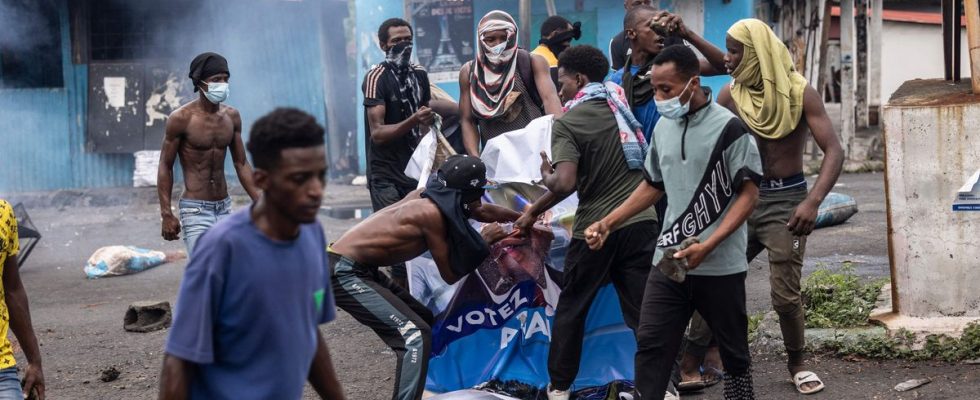Popular protest is gaining momentum in the Comoros. A nighttime curfew was established on Wednesday on the archipelago, after clashes between protesters and the police in the capital, the day after the announcement of the victory in the first round of the outgoing and former putschist Azali Assoumani in the presidential election, punctuated by “fraud”, according to the opposition. The UN, for its part, launched an appeal for “calm”, urging in a press release the Comorian authorities to respect the right to demonstrate and “democratic principles”.
What measures have been announced?
“A curfew has been established,” Defense delegate Youssoufa Mohamed Ali announced on national television in the evening. According to the decree published immediately, the measure which comes into force immediately places the capital Moroni under curfew between 7:00 p.m. and 6:00 a.m. as well as the rest of the territory between 10:00 p.m. and 6:00 a.m.
The center of the capital, which has some 100,000 inhabitants, was cordoned off on Wednesday by police, gendarmes and soldiers deployed in large numbers. The road leading to the main airport of the Indian Ocean archipelago, made up of the islands of Grande Comore, Anjouan and Mohéli, was blocked.
The government spokesperson denounced “public unrest” to AFP. Protest is often quickly stifled in this country held with an iron fist. “It is organized by those who do not accept defeat,” said Houmed Msaidie, referring to arrests without giving a figure. The day before, he had warned: “They have been defeated […] Don’t let them try to be angry, we won’t let it happen.”
What is the extent of the clashes?
Throughout the day, in the streets of Moroni, makeshift roadblocks made of bits of bitumen, stones and household appliances were set up on the road. Many businesses remained closed. Charred carcasses on the shoulders and the remains of burnt tires gave the capital the appearance of a city in the grip of an urban guerrilla war. Several buildings were set on fire, AFP journalists noted.
The Internet connection was partially interrupted, with the main operator citing “disruptions”. In the alleys of the popular district of Coulée (north), groups of young people threw stones in the direction of the police, who responded systematically with jets of tear gas. Detonations rang out in several neighborhoods.
In some schools, students and staff remained cloistered. According to a witness, a rice depot, a staple food in the archipelago, was vandalized and looted.
Why does the opposition suspect “massive fraud”?
The opposition, which had called on “the Comorian people” to “ensure the will and electoral choice of the people”, demanded on Wednesday the “cancellation” of Sunday’s elections.
Some 340,000 voters were called to go to the polls to elect their president and the governors of the country’s three islands. The presidential vote recorded an exceptionally low turnout of 16.30%, according to the electoral commission (Ceni), contrasting with a first estimate published Sunday evening at more than 60%.
“Unquestionably, these ballots […] are not valid. We denounce them and demand their outright cancellation,” Azali’s five rival candidates said in a joint statement.
According to them, official participation figures show that around 2/3 of voters voted to elect their governors but not to choose their president. Such a gap in participation is “impossible”, believes the opposition, and “a gross fraud is thus established”.
Some 189,497 voters voted for their governors, but only 55,258 in the presidential election, according to official figures. The opposition also claimed, as early as Sunday, to have noted numerous irregularities during the vote and in particular “ballot box stuffing”.
Who is the president?
Azali Assoumani, a 65-year-old former putschist soldier, won 62.97% of the votes, according to provisional results. He must therefore return for a third consecutive term which should keep him in power until 2029. The results of the vote must still be validated by the Supreme Court, the highest court in the country of 870,000 inhabitants, 45% of whom live below the threshold of poverty.

